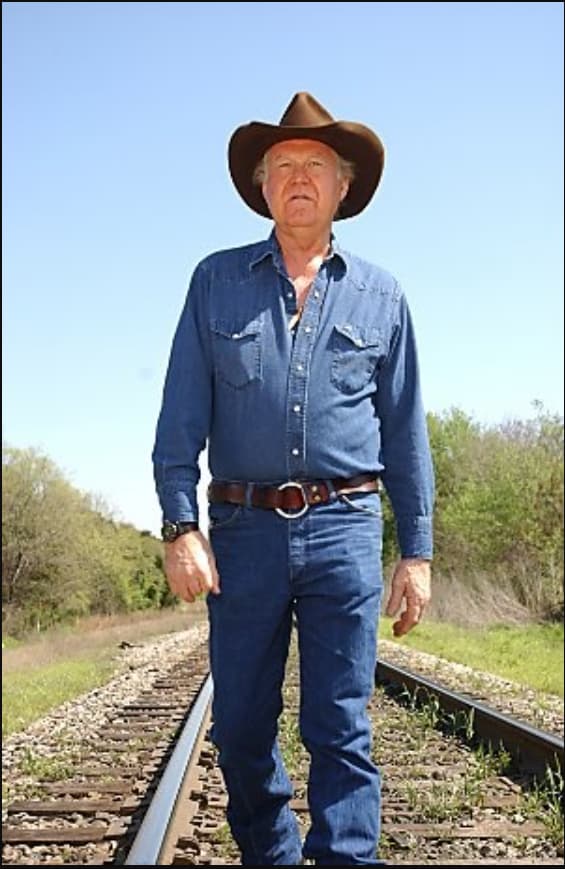
An Autobiography in a Song: The Rambling, God-Fearing Soul of an Outlaw
There are some songs, my friends, that are less musical compositions and more miniature autobiographies, distilled down to three minutes of raw, unvarnished truth. Billy Joe Shaver’s “I Been to Georgia on a Fast Train” is one such treasure. Released on his seminal 1973 debut album, Old Five and Dimers Like Me, this track is the very definition of the “outlaw country” spirit, a bracing shot of honky-tonk swagger mixed with working-man wisdom. It’s the sound of a man who’s lived a life, not just observed it, and is willing to tell you every hard-won detail without a speck of pretense.
When it first chugged its way onto the airwaves in July 1973 as a single, the original version, “I Been to Georgia on a Fast Train,” didn’t set the charts ablaze, peaking modestly at number 88 on the U.S. Billboard country chart. But, as we veterans of the classic country era know, chart positions rarely tell the full story of a song’s true, enduring impact. This tune, more than any other by Shaver, became his signature anthem, his calling card, and a touchstone for the entire outlaw movement. It was a declaration of independence that echoed in the hearts of every rambling soul who felt out of place in the slick Nashville machine. The song was later covered by the Man in Black himself, Johnny Cash, whose 1982 version reached a higher peak at number 55, but it is Shaver’s original, rough-hewn delivery that remains definitive.
The story behind the song is pure Billy Joe. Like much of his best work, it’s a direct reflection of his hardscrabble life, one filled with broken homes, odd jobs, and a constant search for something more. The lyrics paint a vivid picture of his own tumultuous upbringing: “I been to town and country,” he sings, “been to honest and proud,” referencing his Corsicana, Texas roots, his time spent picking cotton, and the indelible mark left by his mother, Victory Watson Shaver, and his grandmother. The title itself is often said to be a metaphor for the speed and urgency of his life, a constant rush from one experience to the next. It’s a song about pride in one’s origins, no matter how humble, and a deep, often conflicted, faith. Shaver’s genius lies in turning the specifics of his biography—from his time in the Navy to his desire to escape his rural destiny—into universal feelings of restlessness and self-definition.
Listen closely, and you hear the meaning of the song unfold: it’s a defiant affirmation of identity, a salute to the person you are, warts and all, because of where you came from. The central, enduring image is one of motion and escape—that fast train—but also of the firm foundation of his roots. He sings of having “a good Christian woman” and “God-fearing ways,” even as his life often followed a wilder path, a testament to the internal tug-of-war that defines so many of us who tried to balance faith with a life lived on the fringes. It’s a song for anyone who ever packed a suitcase with hope and a little fear, heading off to find their place, only to realize that their place was always within themselves. It’s a nostalgic nod to the places and people that shaped us, and a bold promise that we won’t forget them, even when we’re flying down that fast track toward a new horizon. The song, like Billy Joe Shaver himself, is an unpolished gem of American poetry, honest, gritty, and profoundly human.